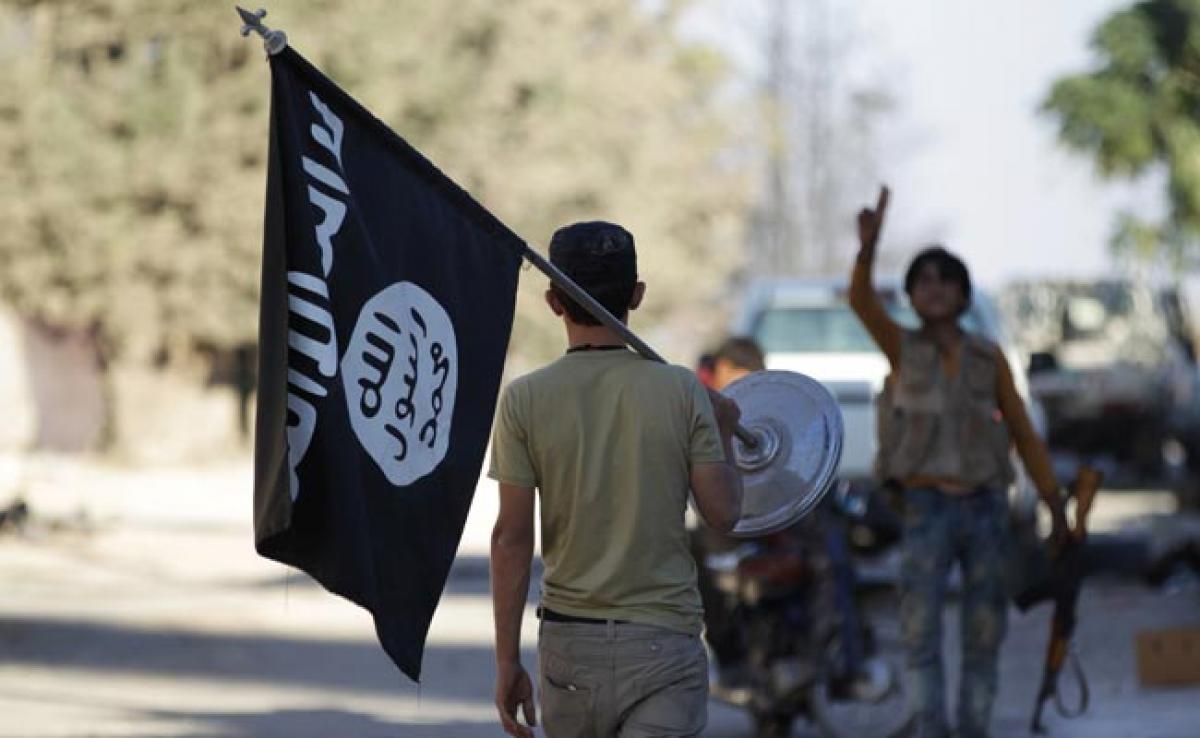Live
- CM: Bypass to be constructed to decongest traffic in Kurukshetra
- Harassed by police, leader commits suicide in Baran
- Sikh preacher Dhadrianwale booked for rape, murder
- AI-powered digital initiatives at RGIA
- Yogi’s efforts revive Nagvasuki Temple ahead of Maha Kumbh
- Delhi drowning deaths : HC seeks CBI reply over interim bail to coaching centre officials
- Energy Secretary reviews power supply preparedness for summer
- ‘Welcome’ actor Mushtaq kidnapped near Meerut
- Farmer leader Dallewal’s fast unto death enters day 16
- City-based techies in Smart India Hackathon-2024 finals
Just In

Al-Qaeda has used America\'s \"preoccupation\" with the ISIS to regain strength in South Asia and preparing to spread its ideology in India from its \"home\" in western Pakistan, top US lawmakers have warned. \"Al-Qaeda has never changed, and it still sees itself in what it conceives as an existential struggle against the West and against the United States in particular,\" Bruce Hoffman, Director Center
Al-Qaeda has used America's "preoccupation" with the ISIS to regain strength in South Asia and preparing to spread its ideology in India from its "home" in western Pakistan, top US lawmakers have warned. "Al-Qaeda has never changed, and it still sees itself in what it conceives as an existential struggle against the West and against the United States in particular," Bruce Hoffman, Director Center for Security Studies at Georgetown University, told members of the House Armed Services Committee.
"I think that it's taken advantage of our preoccupation with ISIS to rebuild its strength, particularly in South Asia, where, again, almost completely escaped notice when they created al-Qaida in the Indian Subcontinent which was designed simultaneously to reinvigorate its presence in Afghanistan," he told Congressman Mac Thornberry, chairman of the committee.
During a Congressional hearing on terrorism and counter- terrorism strategies yesterday, Hoffman said al-Qaeda "had been preparing to spread its ideology to India", which has the world's second-largest Muslim population.
"We already see its effectiveness in Bangladesh and in Burma (Myanmar)," he said.
"But elements like the Khorasan group are an elite forward deployed special operations unit that is waiting for the proper time to take the struggle to the West and to the United States," Hoffman said.
Michael Sheehan from the Combating Terrorism Center, West Point, told lawmakers in response to a question that the Federally Administered Tribal Areas (FATA) of Pakistan is the "home" of al-Qaeda central, which is traditionally America's biggest strategic threat.
"They're the ones that blew up our embassies in Africa, at least an African arm of that, blew up the Cole in - in Yemen, an arm of the al-Qaida central and are the people that are responsible for 9/11. They reside in Pakistan. Some of them are floating back in Afghanistan but it's difficult for them to operate in Afghanistan because we own the terrain around Afghanistan," Sheehan said.
"In Pakistan, in Western Pakistan, it's interesting. We haven't had soldiers there in over 10 years, yet we continue to diminish and degrade the capability of al-Qaida central to reach us strategically. I worry about this all the time, that without that presence there and the Pakistani army isn't in there very often either. Once in a while they come rumbling through, but that's not really that effective," Sheehan said.
"That they're there in those mountainous regions and what's interesting is we need Afghanistan almost as much as a base to attack the FATA than we need Afghanistan itself. Afghanistan has no strategic importance to the United States. However, the importance is that al-Qaida is there and blew up the World Trade Center and the Pentagon. We can't allow that to come back again," Sheehan said.
"They are in Western Pakistan and for a variety of political reasons we can't put troops on the ground there so we've had to come up with a solution to diminish AQ in Pakistan without one soldier on the ground. So sometimes you have to come up with solutions with no troops on the ground.
"Other times if you have the ability to send 100,000 there it doesn't mean you should. So it's a matter of finding the right solution commensurate with the threat," Sheehan said.

© 2024 Hyderabad Media House Limited/The Hans India. All rights reserved. Powered by hocalwire.com







